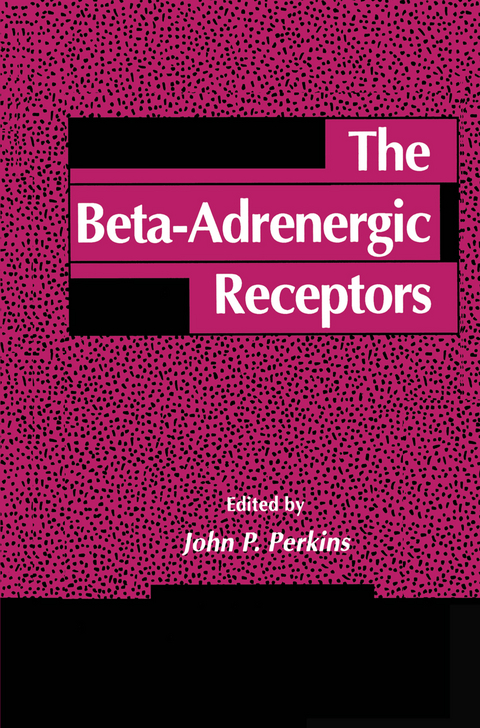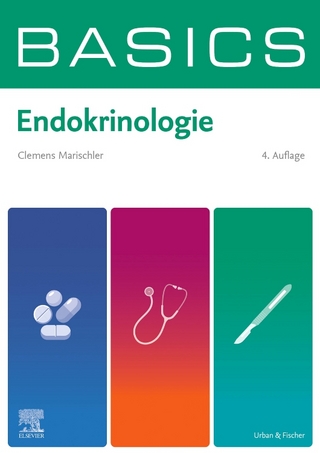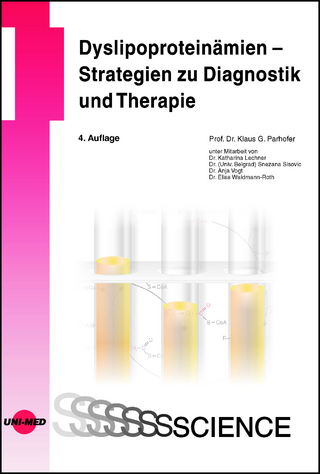
The Beta-Adrenergic Receptors
Seiten
1991
Humana Press Inc. (Verlag)
978-0-89603-173-9 (ISBN)
Humana Press Inc. (Verlag)
978-0-89603-173-9 (ISBN)
A volume on The Beta-Adrenergic Receptors which brings to light the information on this key receptor class - the prototype of a family of receptors that regulate the activity of G-proteins. It is suitable for biochemists, molecular biologists, pharmacologists, physiologists, neuroscientists, and others involved with the study of receptors.
Prior to 1974, the ~adrenergic receptors were known only in- directly as entities that responded to drugs in a selective manner to mediate a variety of physiologically important responses. During the intervening years, our view of ~adrenergic receptors has changed dramatically. The availability of high affinity 125I-labeled radioligands selective for these receptors presaged an explosion of experimenta- tion utilizing direct binding assays to establish the biochemical properties of the receptor protein. In the opening chapter, Stadel and Lefkowitz describe this development and its impact on our under- standing of the molecular basis of ~adrenergic receptor function. The availability of well-characterized receptor ligands, coupled with the development of efficient methods for detergent solubilization, formed the basis of receptor purification using affinity chromatography. The related technique of photoaffinity labeling provided a means to estimate the molecular mass of these receptors. The availability of substantial amounts of purified ~2-adrenergic receptor allowed determination of segments of its amino acid se- quence.
This information led to the production of polynucleotide probes and eventually to cloning of the receptor gene and determi- nation of the complete primary sequence of the receptor protein. Caron and Lefkowitz review the investigations leading to this major development and discuss the methods involved. They analyze our current perception of the relation of receptor function to its structure and discuss the general features of the G protein-interacting receptor family, of which the ~-adrenergic receptors are prototypes.
Prior to 1974, the ~adrenergic receptors were known only in- directly as entities that responded to drugs in a selective manner to mediate a variety of physiologically important responses. During the intervening years, our view of ~adrenergic receptors has changed dramatically. The availability of high affinity 125I-labeled radioligands selective for these receptors presaged an explosion of experimenta- tion utilizing direct binding assays to establish the biochemical properties of the receptor protein. In the opening chapter, Stadel and Lefkowitz describe this development and its impact on our under- standing of the molecular basis of ~adrenergic receptor function. The availability of well-characterized receptor ligands, coupled with the development of efficient methods for detergent solubilization, formed the basis of receptor purification using affinity chromatography. The related technique of photoaffinity labeling provided a means to estimate the molecular mass of these receptors. The availability of substantial amounts of purified ~2-adrenergic receptor allowed determination of segments of its amino acid se- quence.
This information led to the production of polynucleotide probes and eventually to cloning of the receptor gene and determi- nation of the complete primary sequence of the receptor protein. Caron and Lefkowitz review the investigations leading to this major development and discuss the methods involved. They analyze our current perception of the relation of receptor function to its structure and discuss the general features of the G protein-interacting receptor family, of which the ~-adrenergic receptors are prototypes.
1 Beta-Adrenergic Receptors: Identification and Characterization by Radioligand Binding Studies.- 2 Structure—Function Relationships.- 3 Mechanisms of Ligand-Induced Desensitization of Beta-Adrenergic Receptors.- 4 Reconstitution of the Beta-Adrenergic Receptor and Its Biochemical Functions.- 5 Antibodies to Beta-Adrenergic Receptors.- 6 Autoradiographic Studies of Beta-Adrenergic Receptors.- 7 Beta-Adrenergic Receptors in Pathophysiologic States and in Clinical Medicine.- 8 Drug and Hormonal Regulation of the Beta-Adrenergic Receptor—Adenylate Cyclase System.
The chapters can be most warmly recommended to all who are active in fundamental and clinical research.-Arzneimittel-Forschung-Drug Research
| Erscheint lt. Verlag | 26.6.1991 |
|---|---|
| Reihe/Serie | The Receptors |
| Zusatzinfo | IX, 405 p. |
| Verlagsort | Totowa, NJ |
| Sprache | englisch |
| Maße | 155 x 235 mm |
| Themenwelt | Medizinische Fachgebiete ► Innere Medizin ► Endokrinologie |
| Medizin / Pharmazie ► Studium | |
| Naturwissenschaften ► Biologie ► Biochemie | |
| Naturwissenschaften ► Biologie ► Genetik / Molekularbiologie | |
| Naturwissenschaften ► Biologie ► Humanbiologie | |
| Naturwissenschaften ► Biologie ► Zellbiologie | |
| ISBN-10 | 0-89603-173-X / 089603173X |
| ISBN-13 | 978-0-89603-173-9 / 9780896031739 |
| Zustand | Neuware |
| Haben Sie eine Frage zum Produkt? |
Mehr entdecken
aus dem Bereich
aus dem Bereich
Buch | Hardcover (2023)
UNI-MED (Verlag)
39,80 €


